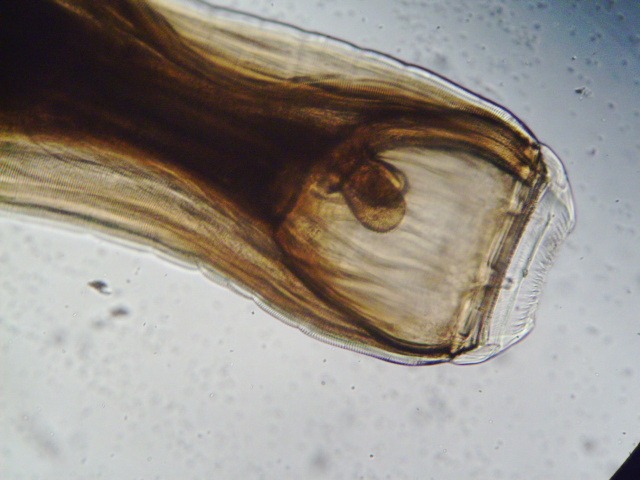Deworming horses is a religion in Germany.
2 times a year, but better but 4 times so it sounds from all corners and ends. And then there are the questions of faith.
Always with the same worm cure and change annually or rather a different one every time? Which works against what, we make the Strongylus in summer and the Dasselfliege in winter. With tapeworm or without and separately or together? This is also a matter of great debate among us veterinarians.
The University of Kentucky shows how it really works. There is a herd of horses there, which has not been dewormed since 1979. And all horses are healthy all around, no diseases that can be traced back to worms, larval migrations or anything else. Funny isn’t it?
Conservative, selective or no deworming at all?
Deworming detergents are not a cure, as I have read in some newspapers.
They are neurotoxins that paralyze the nervous system of the worm so that it can be digested by the horse.
Although the manufacturers claim that ingested poison is excreted undigested, what about the poison that the worm has ingested? After all, a large part of the worms are not excreted, but digested.
And there are plenty of horse owners who can tell of colic in close temporal connection with deworming, some know the problem after each worm cure.
That’s why I don’t like it to blow horses full of poison for purely precautionary reasons and regularly deworming them for no reason at all.
Of course, this is always only a littel bit of active substance, but constant drops hollow the stone.

from wikipedia.org
Then we would have the method of selective deworming. The limit of the worm load in Germany is 200 EPG (eggs per gram).
That is a number, taken completely out of thin air. A few “experts” sat down together and rolled the dice for an evening. How do you think you come up with such a number? Have you thought about it?
And hundreds of people stick to this nonsense.
The fact is, as has been proven in the herd in Kentucky, the immune system of the horses regulates the worm load approximately at 1000 EPG. This is the worm load that horses tolerate excellently without any health problems.
Studies on the effectiveness of deworming
The studies come from the website of Karin Frei.
For example, the Munich Institute of Parasitology investigated the use of deworming agents against roundworms in foals.
For this purpose, a total of 30 foals from seven different Stud farms examined for roundworms. Six stud farms have been used regularly for over three years dewormed as a precaution, depending on the stud farm at intervals of 2-4 months alternating with various preparations.
In a stud farm, deworming was carried out specifically after faecal examination, namely only if there was a stronger infestation.
The result: 80% of the foals excreted roundworm eggs equally in all operations.
Due to the regular administration of “worm cures”, infection with roundworms was not prevented. Nor could the proportion of infected foals be reduced. Deworming infected foal alone could temporarily reduce the amount of egg excretion.
The conclusion of the researchers: It is reasonable to assume that precautionary worm cures neither an infection of pastures and stables with roundworm eggs, nor the risk of infection for foals has been and will be restricted.
Another example against deworming
Another study on the benefits of regular precautionary deworming in young and adult ponies are available from Newmarket.
From spring to autumn, the feces were made up of three Pony groups regularly checked. For one group, feces were collected and analyzed twice a week, a group received a worm cure in spring, summer and autumn and in another group no measures were taken to combat worms.
The concentration of infectious larvae in the feces was then measured.
As expected, this was highest in the “dirty group”. However, it was followed by the group with the three-time Deworming. The best performer was the group in which feces were collected twice a week.
The concentration of the larvae in the “collection group” was only one fifth compared to the “Deworm group”!
And perhaps another aspect from immunology
Antibodies to worms belong to the class of IgE. So do the antibodies that are elevated in allergies and that are believed to play a role in the development of allergies.

from thehealthboard.com
Studies, both on humans (film: Old friends, new enemies) and on animals (long known in horses) have shown that humans or animals with worms have significantly fewer allergies and autoimmune diseases than dewormed organisms.
Interesting, isn’t it?
Some pharmaceutical manufacturers are even considering whether to put worms or worm antigens in a pill for humans to cure asthma.
This exposes all this nonsense for what it is:
One big, dirty business for pharmaceuticals and veterinarians. And it causes our horses more problems than it benefits them.
So what’s the alternative?
Maintain gut health, protect the immune system and perhaps occasionally remember that phytotherapy with a few herbs can also help lower the worm load without harming the horse.